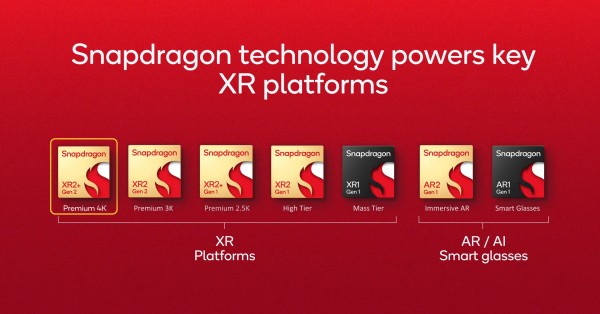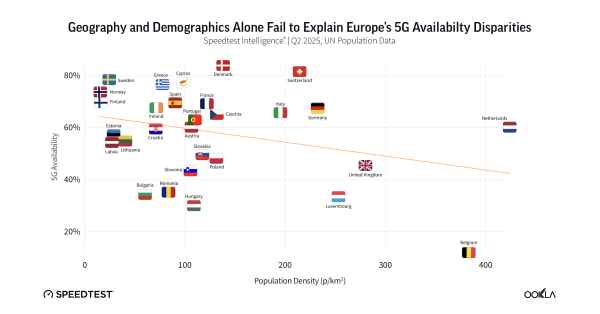Druid Software Expands Private 5G Solutions for Defense and Shipping
Druid Software, an Ireland-based core network provider, has raised $20 million in venture capital to accelerate its growth in the private 4G/5G network market. The funding will focus on advancing its presence in defense, shipping, and utilities—three sectors where reliable and secure connectivity is critical. The funding round was co-led by Boston-based J2 Ventures, which specializes in defense-related investments, and Singapore-based HICO Investment Group, known for its expertise in the maritime and logistics industries.
This marks the first time Druid Software has accepted external investment since its founding in 2000. J2 Ventures Managing Partner, Alexander Harstrick, highlighted the company’s dominance in the private network space, stating, “We’ve been looking at this space for years, and there is really no non-publicly traded business that comes close to Druid’s performance, reach, and efficiency. Entities we thought were competitors turned out to be customers.”
Druid Software’s Journey: 24 Years of Cellular Network Leadership
Druid Software, headquartered in County Wicklow, Ireland, has established itself as a leader in private cellular network technology over the past 24 years. The company has been at the forefront of private 4G/5G innovation, helping to popularize enterprise cellular networks globally. Druid has capitalized on the liberalization of spectrum for enterprise use, offering cutting-edge solutions alongside established players like Nokia and Athonet.
Operating in 35 countries, Druid has supported mission-critical deployments across industries such as healthcare, manufacturing, ports, logistics, and education. Its flagship product, the Raemis platform, has become a cornerstone of enterprise cellular solutions, particularly in the U.S., where it supports deployments in CBRS spectrum (3.55–3.7 GHz).
How Druid Software is Redefining 4G/5G for Non-Industrial Sectors
While the private 4G/5G market has traditionally centered on Industry 4.0 applications—such as manufacturing and port logistics—Druid has also expanded into “carpeted” sectors like healthcare and education, where connectivity is critical for operations in non-industrial environments. This diversification has positioned Druid as a versatile player in the market.
Druid’s Raemis platform has played a pivotal role in this expansion, offering unique features such as dynamic network slicing, which enables enterprises to create distinct network zones with varying levels of bandwidth and speed. This allows customers to prioritize critical applications while reducing resources for less critical tasks. As a result, the Raemis platform has gained significant traction in environments where flexibility and reliability are paramount.
Druid Software’s Role in Powering AI and IoT Through Private Networks
The rapid adoption of IoT devices, AI-powered systems, and advanced connected equipment has driven the demand for private 4G/5G networks. Druid has capitalized on this trend, providing the infrastructure necessary to enable next-generation connectivity. According to Druid, cellular technology has struggled to keep pace with the exponential growth of IoT and AI applications, creating a significant opportunity for its solutions.
Liam Kenny, founder and CEO of Druid Software, commented, “In the last four years, we’ve seen a surge in demand for our products in every major infrastructure category, from healthcare to connected warehouses. When we started 24 years ago, we never imagined how integral our core network products would become. But as people want more computing in more things, one technology is needed to enable the other.”
Key Investors Back Druid Software’s Mission to Scale Private Networks
The $20 million investment round includes participation from prominent industry leaders:
- Arthur Patterson, co-founder of Accel Partners, who played a significant role in the growth of telecom giants like Metro PCS (later acquired by T-Mobile), UUNet (acquired by MFS), and NextG Networks (acquired by Crown Castle).
- John Georges, a serial entrepreneur and founder of companies such as Sobey Networks, NextG Networks, and LGC Wireless.
These strategic investors bring deep expertise and resources to help Druid scale its operations globally and deepen its market penetration in key sectors.
Druid Software Leads the Way in Secure and Scalable 5G Networks
Druid’s success is built on its ability to address the unique challenges of mission-critical environments. The Raemis platform is particularly suited for sectors like defense, shipping, and utilities, where traditional connectivity solutions often fall short. Its ability to deliver secure, scalable, and customizable private networks has made Druid a preferred partner for enterprises seeking reliable connectivity.
The platform also supports advanced applications such as mobile edge computing (MEC), IoT connectivity, and non-terrestrial networks (NTN). By offering robust solutions for public safety, neutral host services, and enterprise communications, Druid is driving innovation across industries.
J2 Ventures and HICO Fuel Druid’s Growth in Key Sectors
The investment from J2 Ventures and HICO Investment Group will enable Druid to accelerate its growth in sectors where connectivity is mission-critical.
J2 Ventures emphasized its confidence in Druid’s potential, stating, “The entire investment is going toward the strategic interests of Druid to help them go even faster in places our group knows very well.”
HICO’s expertise in maritime and logistics will support Druid’s expansion into ports and shipping, while J2 Ventures’ focus on defense will help the company scale its presence in government and military applications.
Druid Software: Innovating the Future of 5G Private Networks
With this strategic funding, Druid Software is well-positioned to lead the next phase of private 4G/5G innovation. Its ability to deliver cutting-edge solutions across diverse industries, coupled with its proven track record of profitability and growth, sets the stage for continued success in the rapidly evolving private network market.
As enterprises increasingly rely on secure, scalable cellular solutions to support their operations, Druid’s Raemis platform will remain at the forefront of enabling next-generation connectivity.





























